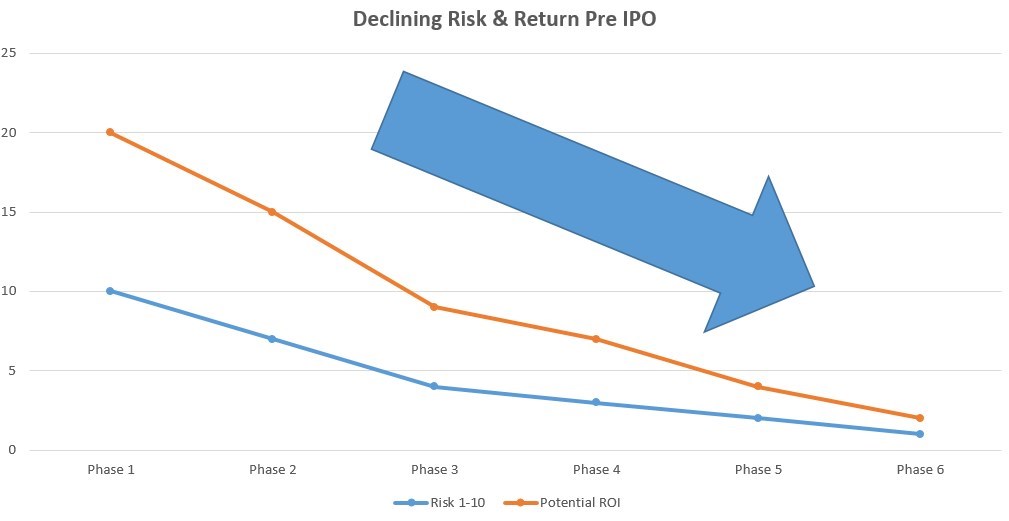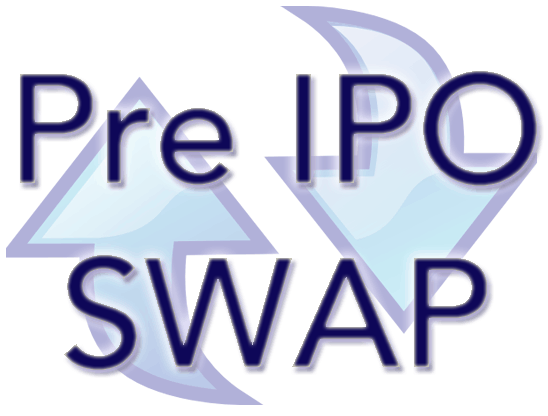Welcome, accredited investor. Pre IPO investing is for accredited investors only. If you’d like to learn more about what is Pre-IPO Investing, click here.
The process

The process could not be more simple and straightforward. It’s completely transparent. First, investors sign up and verify themselves with a regulated broker-dealer. Then you can browse offers. Once you decide on one you like, you can place a firm order or request more information. If there is a price match, you will be introduced to the seller and presented with transaction documents for execution. The logistics of transactions can vary, depending on the circumstances of the deal.
In any transaction, fees are built into the transaction. In the case of an SPV transaction, fees are set by the SPV manager. As a matchmaking system, there is a no-conflict approach to negotiate the lowest possible fees for both sides.
SIGN UPAccredited Investors Only
Private Transactions are for Accredited Investors only.
In the United States, to be considered an accredited investor, one must have a net worth of at least $1,000,000, excluding the value of one’s primary residence, or have income at least $200,000 each year for the last two years (or $300,000 combined income if married) and have the expectation to make the same amount this year. The term “accredited investor” is defined in Rule 501 of Regulation D of the U.S. Securities and Exchange Commission (SEC) as:
- a bank, insurance company, registered investment company, business development company, or small business investment company;
- an employee benefit plan, within the meaning of the Employee Retirement Income Security Act, if a bank, insurance company, or registered investment adviser makes the investment decisions, or if the plan has total assets in excess of $5 million;
- a charitable organization, corporation, or partnership with assets exceeding $5 million;
- a director, executive officer, or general partner of the company selling the securities;
- a business in which all the equity owners are accredited investors;
- a natural person who has individual net worth, or joint net worth with the person’s spouse, that exceeds $1 million at the time of the purchase, or has assets under management of $1 million or above, excluding the value of the individual’s primary residence;[11][12]
- a natural person with income exceeding $200,000 in each of the two most recent years or joint income with a spouse exceeding $300,000 for those years and a reasonable expectation of the same income level in the current year;[13] or
- a trust with assets in excess of $5 million, not formed to acquire the securities offered, whose purchases a sophisticated person makes.”[14][15]
Read more about Accredited Investors internationally
Profile Companies
These companies have been selected due to their demand.
See top companies here @ Profile
We are not making any recommendations on any investment. Investing decisions are the sole responsibility of the investor.
Past Performance
Not every deal is a winner. WeWork was a fraud. On the other hand, Facebook did well – Facebook returned 2,700% for early investors. One strategy that funds use is to create a ‘portfolio’ of 5 – 20 investments in a wide variety of companies, thus smoothing the yield curve and hedging the risk of a single huge failure.
Here’s a winners list with some of the most popular and successful examples:

What it means to invest in Pre IPO?
Let’s cut to the chase. Pre IPO is private equity. The difference is with traditional (most) private equity – Pre IPO companies are about to go public, that means they have achieved the size worthy of an IPO filing. They can be called ‘Unicorns’ but this is just a buzz word. The reality is that these companies are late stage meaning they have huge growth, lots of employees, credibility, and a business that investors want. They have chosen not to go public for various reasons – in the case of Palantir, some have said it’s because of security concerns. In any case – Pre IPO investing is the middle ground where there is a healthy mix of risk and reward. These aren’t startups – and they aren’t blue chips. Not all are going to be the next Facebook – and here’s the rub. How do investors know what will be Facebook and what will be nothing? No one knows, but in this arena you at least have the chance to invest in the next Facebook, and if you only make a 975% return in Twitter you haven’t done so badly. Investing in Pre IPO is not for everyone – but if you do investing and want higher returns than the normal index or manager will provide – it certainly provides a unique opportunity. Take a look at this declining risk return chart:

What this means is that risk & return decline together. The less risky a company is as an investment, the less returns you are likely to get. This is logical, because companies that have solid revenues, good products, and are well known – typically have highly inflated valuations. Publicly traded companies typically trade at valuations way above their book value, and it’s no different in private markets.
THIS IS HIGH RISK INVESTING – WITH ANY TYPE OF HIGH RETURNS ONE SHOULD EXPECT THERE TO BE EQUALLY HIGH RISK.

If you’d like to learn more, see some of our other pages such as Research.
